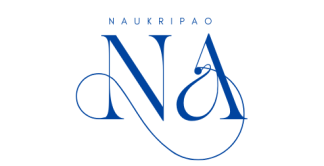
In today’s competitive job market, a well-crafted job application letter can be the key to unlocking new career opportunities. Whether you’re a seasoned professional or a recent graduate, mastering the art of writing an effective job application letter is crucial for standing out from the crowd and landing your dream job. This comprehensive guide will walk you through the process of creating a compelling job application letter, providing valuable insights and practical tips to help you succeed in your job search.
Understanding the Importance of a Job Application Letter
Before diving into the specifics of how to write a job application letter, it’s essential to understand its significance in the job application process. A job application letter, also known as a cover letter, serves as your personal introduction to potential employers. It complements your resume by providing a more detailed and personalized account of your qualifications, skills, and motivation for applying to the position.
Key Functions of a Job Application Letter
- Introducing yourself to the employer
- Highlighting your relevant skills and experiences
- Demonstrating your enthusiasm for the role and company
- Explaining why you’re the ideal candidate for the position
- Encouraging the employer to review your resume and consider you for an interview
Preparing to Write Your Job Application Letter
Before you start writing your letter, it’s crucial to gather all the necessary information and do some preliminary research. This preparation will help you tailor your letter to the specific job and company, increasing your chances of making a strong impression.
Research the Company and Position
- Visit the company’s website and social media profiles
- Read recent news articles or press releases about the organization
- Review the job description thoroughly to understand the key requirements
- Research industry trends and challenges relevant to the position
Gather Your Information
- Update your resume with your latest experiences and achievements
- Make a list of your relevant skills and qualifications
- Collect examples of your past accomplishments that align with the job requirements
- Prepare a list of references if required
𝐑𝐞𝐚𝐝 𝐄𝐦𝐞𝐫𝐠𝐞𝐧𝐜𝐲 𝐋𝐞𝐚𝐯𝐞 𝐋𝐞𝐭𝐭𝐞𝐫: 𝐇𝐨𝐰 𝐭𝐨 𝐖𝐫𝐢𝐭𝐞, 𝐓𝐞𝐦𝐩𝐥𝐚𝐭𝐞𝐬 𝐚𝐧𝐝 𝐒𝐚𝐦𝐩𝐥𝐞𝐬
Structure of a Job Application Letter
A well-structured job application letter follows a standard format that includes several key components. While the content may vary depending on the specific job and your background, the overall structure remains consistent.
1. Header
- Your full name
- Address
- Phone number
- Email address
- Date
- Recipient’s name and title
- Company name and address
2. Salutation
- Use a professional greeting, such as “Dear Mr./Ms. [Last Name]”
- If you don’t know the recipient’s name, use “Dear Hiring Manager” or “To Whom It May Concern.”
3. Opening Paragraph
- State the position you’re applying for and how you learned about it
- Express your enthusiasm for the role and the company
- Briefly mention why you’re interested in the position
4. Body Paragraphs
- Highlight your relevant skills, experiences, and achievements
- Explain how your qualifications align with the job requirements
- Provide specific examples to demonstrate your capabilities
- Show your knowledge of the company and industry
5. Closing Paragraph
- Reiterate your interest in the position
- Thank the employer for their time and consideration
- Express your eagerness for an interview or further discussion
6. Complimentary Close
- Use a professional closing, such as “Sincerely” or “Best regards.”
- Include your full name and signature (if submitting a hard copy)
Writing a Compelling Job Application Letter
Now that you understand the structure, let’s delve into the specifics of crafting a powerful and persuasive job application letter.
Tailor Your Letter to the Job and Company
One of the most critical aspects of writing an effective job application letter is customizing it for each position you apply to. Generic, one-size-fits-all letters are easily spotted and often disregarded by employers. To make your letter stand out:
- Address the specific requirements mentioned in the job description
- Use keywords and phrases from the job posting
- Demonstrate your knowledge of the company’s values, mission, and recent achievements
- Explain how your skills and experiences align with the company’s goals and needs
Highlight Your Relevant Skills and Experience
Your job application letter should complement your resume by providing more context and detail about your qualifications. To effectively showcase your skills:
- Focus on the most relevant experiences and achievements
- Use specific examples to illustrate your capabilities
- Quantify your accomplishments whenever possible (e.g., “increased sales by 25%”)
- Explain how your skills can benefit the company in the role you’re applying for
Demonstrate Your Enthusiasm and Cultural Fit
Employers are not only looking for qualified candidates but also individuals who are passionate about the role and fit well within their organizational culture. To convey your enthusiasm:
- Express genuine interest in the company and its mission
- Explain why you’re excited about the specific role
- Share how your values align with the company’s culture
- Mention any personal connections or experiences that draw you to the organization
Use a Professional Tone and Language
The tone and language of your job application letter should be professional, confident, and engaging. To achieve this:
- Use a formal writing style, avoiding slang or casual language
- Be concise and to the point, avoiding unnecessary details
- Use active voice and strong action verbs
- Proofread carefully for grammar, spelling, and punctuation errors
Special Considerations for Different Types of Job Applications
While the general principles of writing a job application letter apply to most situations, there are some special considerations for specific types of applications.
Teacher Job Application
When applying for a teaching position, focus on:
- Your educational philosophy and teaching style
- Specific examples of successful lesson plans or classroom management techniques
- Your ability to work with diverse student populations
- Any specialized training or certifications relevant to teaching
Class 12 Job Application
For students applying for their first job after completing Class 12:
- Emphasize your academic achievements and extracurricular activities
- Highlight any internships, volunteer work, or part-time jobs
- Demonstrate your eagerness to learn and grow in the role
- Explain how the skills you’ve developed in school can translate to the workplace
Form Job Application
Some companies may require applicants to fill out a standardized job application form. In these cases:
- Follow all instructions carefully
- Fill out the form completely and accurately
- Use the additional comments section (if available) to highlight key qualifications
- Attach a separate job application letter if allowed, following the guidelines outlined above
Common Mistakes to Avoid in Job Application Letters
To ensure your job application letter makes the best possible impression, avoid these common pitfalls:
- Using a generic, one-size-fits-all letter
- Repeating information directly from your resume without additional context
- Focusing too much on what you want, rather than what you can offer the company
- Including irrelevant personal information or hobbies
- Using an unprofessional email address or contact information
- Overlooking spelling, grammar, or formatting errors
- Exaggerating or misrepresenting your qualifications
- Forgetting to sign the letter (for hard copies)
Final Tips for Success
To maximize the impact of your job application letter:
- Keep it concise: Aim for one page, or a maximum of two for senior positions
- Use a clean, professional font and formatting
- Submit your letter in the requested format (e.g., PDF, Word document)
- Follow up politely if you haven’t heard back within the specified timeframe
- Customize each letter for the specific job and company
- Have a trusted friend or mentor review your letter before submitting
Conclusion
Writing an effective job application letter is a crucial skill that can significantly impact your job search success. By following the guidelines outlined in this comprehensive guide, you’ll be well-equipped to craft compelling letters that showcase your qualifications, demonstrate your enthusiasm, and set you apart from other applicants. Remember, practice makes perfect – the more job application letters you write, the more confident and proficient you’ll become in presenting yourself as the ideal candidate for your desired positions.
